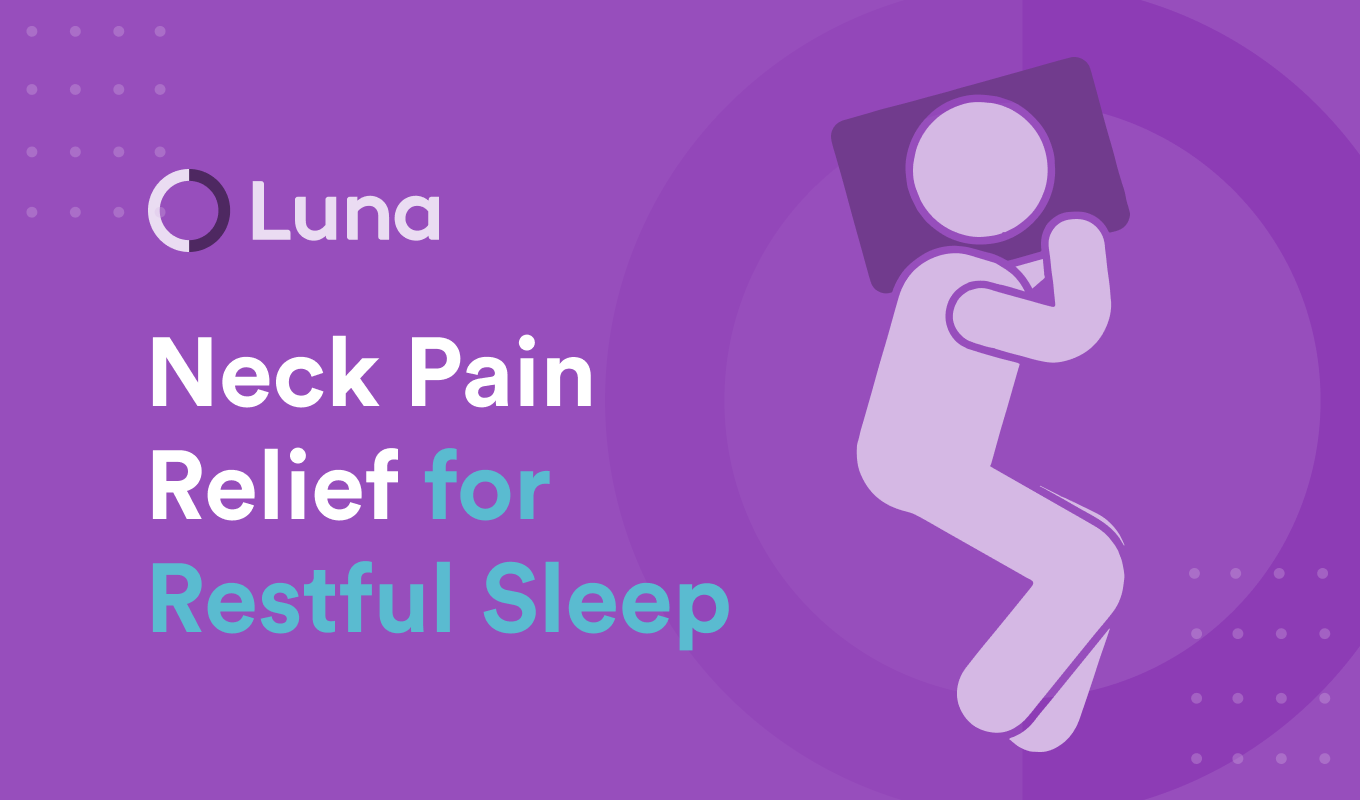Pain Keeping You Awake? Tips on How to Sleep with Neck Pain

A sore or stiff neck isn’t uncommon, but it can become a huge challenge, preventing more than one night of restful sleep. If you're constantly tossing and turning at night trying to find a comfortable position because of neck pain that won’t go away, you're not alone.
We’ve put together some practical advice on how to sleep with neck pain so you can wake up feeling refreshed and ready for a new day.
Whether your neck pain results from poor posture, a recent neck injury, or a chronic condition, these tips aim to help you find the relief and rest you're looking for.
What’s Causing My Neck Pain?
The first step to better sleep (and recovering from neck pain) involves learning what’s causing your neck pain to begin. The answer, however, isn't that simple. Neck pain could be the result of anything from spending too many hours sitting in front of the computer to a neck injury from your workout.

How to Sleep with Neck Pain
The right position can make a huge difference in your quality of sleep. There are two main sleeping positions to consider when you experience pain in your neck:

Sleeping on Your Back: This is recommended — and often the most ideal position — because it keeps your spine, neck, and head aligned in a neutral position, letting your body rest with the natural curve of your spine.

Sleeping on Your Side: Side sleeping is another good option to lessen your neck pain while you sleep as long as your head is in a neutral position, aligned with your spine. Having your head tilted up or down may exacerbate your neck pain.
Tips for Choosing the Right Pillow to Relieve Neck Pain
Believe it or not, the pillow you use can make or break your sleep cycle. Here are some tips for choosing the right one:
 Make sure the thickness of the pillow aligns your neck and head with your spine. Too much or too little can tilt your head out of alignment, increasing pain.
Make sure the thickness of the pillow aligns your neck and head with your spine. Too much or too little can tilt your head out of alignment, increasing pain.
 If you’re a side sleeper, the pillow should fill the space between your ear and the shoulder. This keeps your head and neck properly aligned with your spine.
If you’re a side sleeper, the pillow should fill the space between your ear and the shoulder. This keeps your head and neck properly aligned with your spine.
 Back sleepers should use a thin pillow, or consider using a cervical pillow that is designed specifically for bringing support to the neck and the head area.
Back sleepers should use a thin pillow, or consider using a cervical pillow that is designed specifically for bringing support to the neck and the head area.
 Take note of the material of your pillow as well. Memory foam, latex, or water pillows provide the best support and can contour to your neck and head.
Take note of the material of your pillow as well. Memory foam, latex, or water pillows provide the best support and can contour to your neck and head.
 Stay clear of excessively soft materials that fail to provide adequate support, as they might not meet your body's needs and could lead to discomfort or strain.
Stay clear of excessively soft materials that fail to provide adequate support, as they might not meet your body's needs and could lead to discomfort or strain.
 Many pillow brands offer sleep trials. Take advantage of these so you can find a pillow that not only is comfortable but also offers the support you need.
Many pillow brands offer sleep trials. Take advantage of these so you can find a pillow that not only is comfortable but also offers the support you need.
Improving Sleep for Better Health
Just because you’re dealing with neck pain now, doesn’t mean you’re doomed to endless nights of pain and discomfort, but poor sleep may start to affect other areas of your life. If you don’t see any relief in neck pain after adjusting your sleep habits, consult your doctor.
At-home physical therapy with Luna is a great option that can provide fast neck pain relief, especially when treated early, making sure the improvements in your sleep last.
If you want to start relieving pain, see improvements in your posture, and learn better habits for sounder sleep, contact us today.




